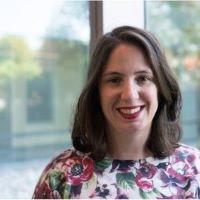Session Description
We plan to review cases seen at UCSF Medical Center with a prenatal diagnosis of non-immune hydrops fetalis and a normal microarray who went on to have prenatal exome sequencing. The results of the exome sequencing including the variant details and laboratory interpretation will be reviewed. We will discuss the disclosure of results and review the impact these results had on the medical management of the neonates and family planning.
Learning Objectives
At the conclusion of the series, participants should be able to:
- Describe the clinical utility of whole exome/whole genome sequencing tests
- Identify clinical indications for whole exome/whole genome sequencing
- List determinants used to assess the probability of a variant’s pathogenicity
- Elaborate on the importance of pre-test counseling and consent
Session Learning Objectives
At the conclusion of this session, participants should be able to:
- Identify patients appropriate for referral for prenatal exome sequencing with an indication of nonimmune hydrops fetalis.
- Recognize the genetic heterogeneity of non-immune hydrops fetalis.
- Describe the potential clinical utility of performing exome sequencing in the setting of non-immune hydrops fetalis.
Faculty:

Mary E Norton, MD, FACMG
Professor, Division Chief, Department of Obstetrics, Gynecology, and Reproductive Sciences
David E Thornburn, MD and Kate McKee Thornburn Endowed Chair in Perinatal Medicine and Genetics

Teresa Sparks, MD, MAS, FACMG
Assistant Professor, Maternal Fetal Medicine and Clinical Genetics, Department of Obstetrics, Gynecology, & Reproductive Sciences

Patrick Devine, MD, PhD
Assistant Clinical Professor, Pathology

Billie Lianoglou, MS
Genetic Counselor, Center for Maternal-Fetal Precision Medicine
Educational Credits are not offered.
Target Audience
- Clinical geneticists; genetic counselors; pediatric, obstetric, and maternal-fetal specialists; and all medical practitioners who are providing comprehensive diagnostic, management, and counseling services for patients with, or at risk for, genetically influenced health problems.
- Laboratory directors and technicians who conduct genetic testing, researchers involved in the discovery of genetic disorders and treatments and any healthcare and public health professionals who have an in interest medical and clinical genetics and genomics.
Off-label Drug Use statement
When an off-label use of a product, or an investigational use not yet approved for any purpose, is discussed during an educational activity, the accredited sponsor shall require the speaker to disclose that the product is not labeled for the use under discussion, or that the product is still investigational. Discussions of such uses shall focus on those uses that have been subject of objective investigation.
Disclosures of Financial Relationships
Staff - American College of Medical Genetics and Genomics
The following have nothing to disclose.
Jane Radford, MHA, CHCP
Claudia Barnett
Maximilian Muenke, MD, FACMG
Presenter Disclosures
Mary E Norton, MD, FACMG
Professor, Division Chief, Department of Obstetrics, Gynecology, and Reproductive Sciences
David E Thornburn, MD and Kate McKee Thornburn Endowed Chair in Perinatal Medicine and Genetics
Disclosures: (Self) Grant Support from Natera; Consultant for Invitae
Teresa Sparks, MD, MAS, FACMG
Assistant Professor, Maternal Fetal Medicine and Clinical Genetics, Department of Obstetrics, Gynecology, & Reproductive Sciences
Has no relevant financial relationships to disclose.
Patrick Devine, MD, PhD
Assistant Clinical Professor, Pathology
Has no relevant financial relationships to disclose.
Billie Lianoglou, MS
Genetic Counselor, Center for Maternal-Fetal Precision Medicine
Has no relevant financial relationships to disclose.